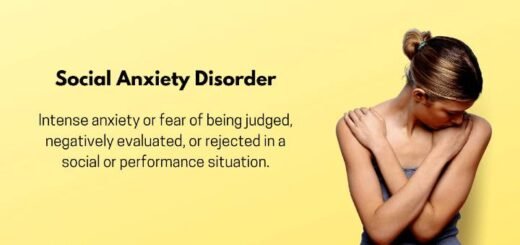Track Your Growth: Journaling for Progress and Challenges
Progress tracking is essential for personal growth, especially for those managing social phobia. By engaging in regular journaling sessions, individuals can evaluate their experiences, identify challenges, and celebrate achievements. This reflective practice not only fosters mindfulness but also provides a safe space to explore emotions and thoughts related to social interactions. Through consistent journaling, you’ll gain valuable insights into your progress, making it easier to navigate the complexities of social anxiety.
In this exploration of progress tracking through journaling, we’ll delve into effective strategies that promote mindfulness and self-awareness. You’ll learn how to harness the power of written expression to confront your fears and track your journey toward improvement. By the end, you’ll be equipped with practical tools to enhance your understanding of personal growth, while also gaining a deeper appreciation for the transformative role of journaling in managing social phobia.
Discover more about Journaling for Social Phobia Management here.
The Importance of Progress Tracking
Understanding Growth and Development
Progress tracking is an essential component of personal and professional development. It allows individuals to identify their strengths, recognize areas for improvement, and celebrate milestones along their journey. By consistently evaluating growth, individuals can gain insights into their habits, motivations, and emotional well-being. This practice is especially vital for those navigating challenges such as social phobia, where understanding one’s progress can foster resilience and confidence.
Role of Journaling in Personal and Professional Development
Journaling serves as a powerful tool in the realm of progress tracking. Through regular journaling sessions, individuals can document their thoughts, feelings, and experiences, creating a rich tapestry of their journey. This practice not only enhances self-awareness but also enables reflection on both achievements and setbacks. For instance, journaling for social phobia management can provide a safe space to articulate fears and anxieties, facilitating a deeper understanding of the triggers and coping mechanisms that work best for each person.
Moreover, incorporating elements of mindfulness.org.nz/’>mindfulness into journaling can further enhance this reflective process, promoting a non-judgmental awareness of thoughts and feelings.
Additionally, the act of writing itself can serve as a form of cognitive rehearsal, where individuals visualize and mentally prepare for future social encounters. This technique can be particularly beneficial for those in New Zealand, as it helps to build confidence and reduce the fear associated with social situations. For practical tips on coping with social phobia, check out this resource: Coping with Social Phobia.
In summary, the science behind journaling underscores its significance as a reflective practice that can lead to profound psychological benefits. By understanding the cognitive processes involved in reflection, individuals can leverage journaling as a means to evaluate their growth and address challenges effectively.
Setting Up Effective Journaling Sessions
Choosing the Right Format (Digital vs. Paper)
When it comes to journaling for social phobia management, selecting the right format can significantly influence your experience. Digital journaling offers the convenience of access on various devices, allowing for quick entries and the ability to incorporate multimedia elements like voice notes or images. Apps such as Day One or Journaly can enhance your reflective practice through prompts and reminders.
On the other hand, traditional paper journaling can foster a deeper connection to your thoughts. The tactile experience of writing can promote mindfulness, making it easier to immerse yourself in the reflective process. Many individuals find that the physical act of writing helps to clarify their thoughts and emotions, especially when grappling with challenges related to social phobia. Consider your personal preferences and lifestyle when choosing the format that best suits your needs.
Creating a Conducive Environment for Reflection
Establishing a comfortable and distraction-free environment is crucial for effective journaling sessions. Find a quiet space where you feel at ease, whether it’s a cozy corner of your home or a peaceful spot in a local park. Incorporating elements of mindfulness, such as soft lighting or calming scents, can enhance your journaling experience. Creating a designated journaling space can signal to your brain that it’s time to reflect and engage with your thoughts.
Additionally, consider the time of day that works best for you. Some individuals prefer to journal in the morning to set intentions for the day, while others may find evening reflections beneficial for processing their experiences. Experiment with different times and environments to discover what best supports your journaling practice.
As you embark on your journaling journey, remember to incorporate techniques that align with your personal values and goals. For instance, if you are managing social phobia, you might focus on writing about your feelings in social situations, exploring patterns, and identifying coping strategies. This focused approach can lead to meaningful insights and growth over time.
For additional resources on coping with social phobia, check out this guide that offers practical strategies and support.
Ultimately, the key to effective journaling lies in consistency and intention. By setting up your journaling sessions thoughtfully, you can create a powerful tool for self-reflection and personal development.
Establishing Goals for Your Journaling Practice
Setting clear goals for your journaling practice is crucial to maximizing its benefits, especially when it comes to personal growth and overcoming challenges such as social phobia. By defining what you want to achieve through journaling, you can create a structured approach that aligns with your personal values and objectives, ultimately enhancing your reflective practice.
Short-term vs. Long-term Goals
When establishing goals, it’s essential to differentiate between short-term and long-term objectives. Short-term goals might include daily reflections on your emotions or weekly assessments of your social interactions. These can help you track immediate progress and adjust your strategies accordingly. Long-term goals, on the other hand, could focus on broader themes such as developing resilience against social anxiety or improving your overall mental well-being through consistent journaling. By setting both types of goals, you can create a comprehensive roadmap that guides your journaling sessions and helps you stay motivated.
Aligning Journaling with Personal Values and Objectives
Aligning your journaling practice with your personal values is vital for maintaining motivation and relevance in your reflections. For instance, if mindfulness is a core value for you, consider incorporating mindfulness techniques into your journaling sessions. This could involve writing about your present experiences or emotions without judgment, allowing you to cultivate a deeper understanding of your thoughts and feelings. Resources such as Mindful.org provide valuable insights into how mindfulness can enhance your journaling experience.
In New Zealand, many individuals have found success in using journaling as a tool for personal development. By reflecting on their values and aligning their goals with their journaling practice, they have been able to navigate challenges more effectively. For those specifically dealing with social phobia, the New Zealand-based resource Social Phobia NZ offers guidance on coping strategies that can be integrated into your journaling sessions.
Moreover, consider utilizing guided prompts that focus on your values and objectives. These can serve as a springboard for deeper reflection and help you maintain focus on your goals. For example, prompts like “What social situations challenge me the most?” or “How can I apply mindfulness to my interactions?” can lead to valuable insights that foster growth.
Ultimately, establishing clear, value-aligned goals for your journaling practice is a powerful way to evaluate your growth and address challenges. By committing to this reflective process, you can enhance your understanding of yourself and develop strategies to manage social phobia effectively. For additional tips on coping with social phobia, visit Coping with Social Phobia Tips.
For further exploration of journaling techniques and their benefits, consider visiting Psychology Today and New Zealand Health Services for practical insights and resources.
Frequently Asked Questions (FAQs)
What is progress tracking in the context of journaling?
Progress tracking through journaling involves regularly documenting thoughts, feelings, and experiences to evaluate personal growth and challenges over time. By consistently reflecting on these entries, individuals can identify patterns in their behaviors, recognize triggers, and celebrate milestones, making it easier to understand their journey and areas that require improvement. This practice can be particularly beneficial for managing social phobia, as it offers insights into specific situations that may cause anxiety and allows for the development of coping strategies.
How can journaling help with social phobia management?
Journaling can serve as a powerful tool for individuals dealing with social phobia by providing a safe space to express thoughts and emotions without fear of judgment. It allows individuals to explore their feelings about social situations, identify irrational fears, and challenge negative beliefs. By documenting these experiences, individuals can gain a clearer understanding of their social anxieties and track their progress over time. This reflective practice can also facilitate the development of coping mechanisms to handle anxiety-provoking situations more effectively.
What should I include in my journaling sessions to track progress effectively?
To track progress effectively, consider including specific details in your journaling sessions such as the date, the social situations you encountered, your feelings before and after these interactions, and any coping strategies you employed. Additionally, note any successes or setbacks, as well as insights gained from these experiences. Over time, reviewing these entries will help you recognize growth, monitor recurring challenges, and adjust your approach to managing social phobia.
How often should I journal to see significant progress?
To see significant progress, it is recommended to journal regularly, ideally on a daily or weekly basis. Consistent journaling allows for more accurate tracking of thoughts and emotions related to social situations, providing richer data for reflection. Even short entries can be valuable; the key is to maintain a routine that fits your lifestyle. The more frequently you engage in this practice, the more comprehensive your understanding of your social phobia and personal growth will become.
Can journaling replace professional help for social phobia?
While journaling can be a beneficial complementary tool for managing social phobia, it should not be seen as a replacement for professional help. Therapy, particularly cognitive-behavioral therapy (CBT), can offer structured support and strategies that journaling alone may not provide. However, journaling can enhance the therapeutic process by helping individuals articulate their feelings and track their progress between sessions. Using journaling alongside professional guidance can lead to a more holistic approach to managing social phobia.
What are some tips for getting started with journaling for social phobia management?
To get started with journaling for social phobia management, begin by choosing a comfortable writing medium, whether it’s a physical notebook or a digital platform. Set aside a specific time each day or week dedicated to journaling. Begin with small, manageable entries, focusing on recent social experiences, your feelings about them, and any coping strategies used. Over time, allow your entries to evolve as you become more comfortable with the process. Remember, there are no right or wrong entries—what matters is that you express yourself openly and honestly.
References
- Social Phobia New Zealand – A resource providing insights on mental health, including the benefits of journaling for self-reflection and tracking progress.
- The Benefits of Journaling – An article discussing how journaling can help evaluate personal growth and challenges.
- The Benefits of Journaling for Mental Health – A comprehensive overview of how regular journaling sessions can support mental wellness and track progress.
- Why You Should Start a Journal and How to Do It – A guide on starting a journaling practice with an emphasis on tracking personal growth.
- How Journaling Can Improve Your Mental Health – An analysis of how regular journaling can aid in evaluating emotional and psychological challenges.
- The Benefits of Journaling: Why You Should Start Today – An exploration of the various benefits of journaling, including tracking progress over time.
- The Benefits of Journaling: Why You Should Start Today – A look at how journaling can help with self-reflection and tracking personal development.




